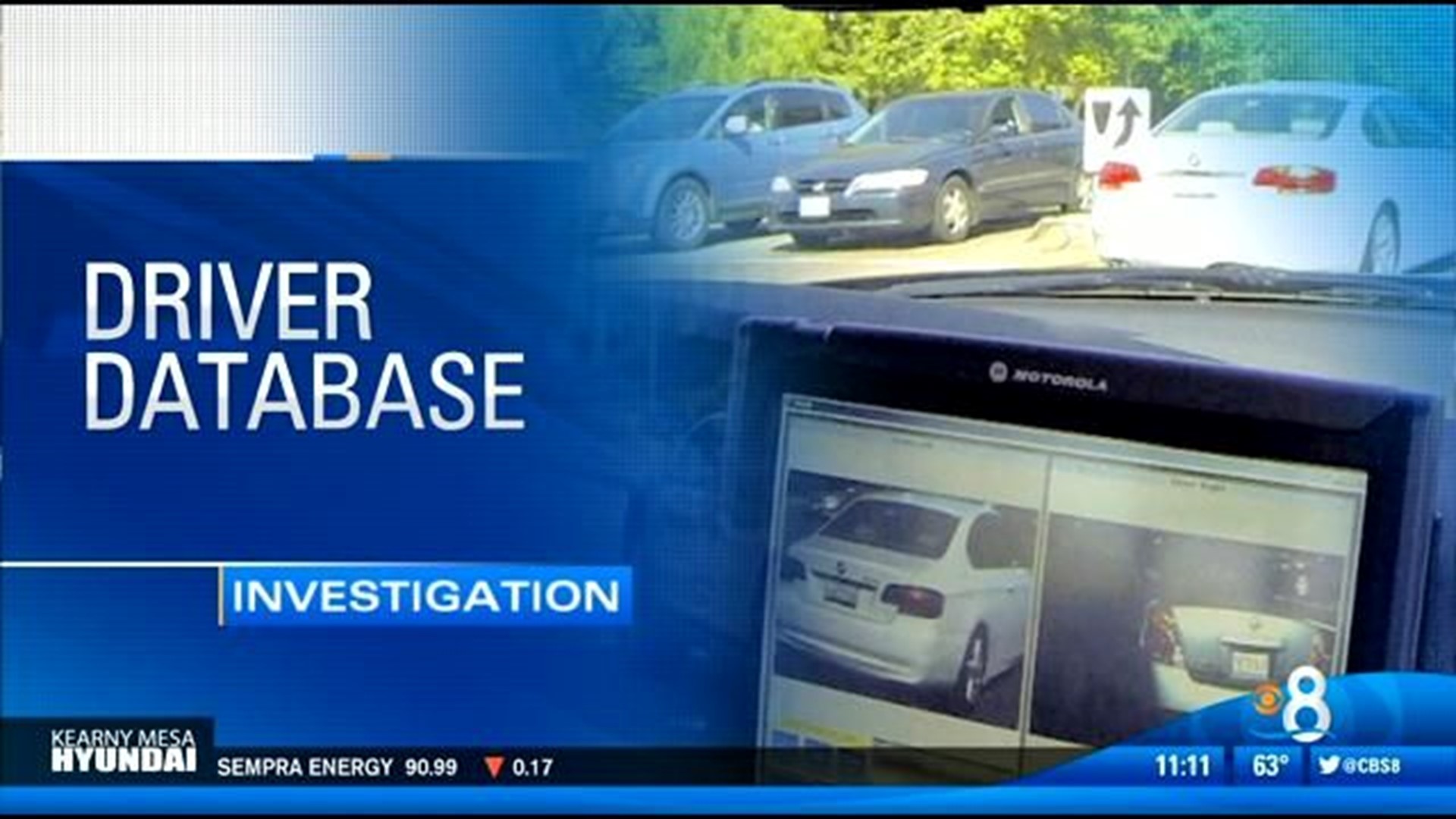SAN DIEGO, Calif. (CBS 8) -- A massive data collection operation is underway in San Diego county to store and search millions of photographs. The photos are being taken by license plate reading cameras mounted on law enforcement vehicles all across the county.
The San Diego County Sheriff's Department currently has license plate cameras mounted on more than 50 vehicles.
"You can run two to three thousand license plates a day," said Deputy Sheriff Scott Roller during a demonstration drive.
In less than a second the license plate is checked against a database of stolen and wanted vehicles.
"It takes a picture and then analyses the image it received to see if it is indeed a license plate," explained Deputy Roller.
But the system does more than just scan license plates in real time. It also stores license plate photos for up to two years, keeping track of the date, time of day and the GPS location of the scanned vehicles.
"It's a great tool for crime prevention to track down known offenders," according to Sheriff Commander David Myers.
Detectives can access the database and find out exactly where that vehicle – and theoretically it's driver – has been over the past two years.
Investigators can also use the license plate database to locate potential witnesses.
"Let's say we're at a homicide scene, responding units are arriving and other vehicles are leaving, which may have nothing to do with what happened but could be witnesses later on," said Myers. "It allows us an opportunity to see who was in an area at a certain time."
"We have very strict guidelines within the Sheriff's Department about accessing; who can access, when it can be accessed and how it can be used," said Myers.
"It's not used to spy on anybody. We don't drive into people's garages. We don't drive into their backyards. We drive on public roads and public freeways," said Myers.
The license plate database --- maintained by the San Diego Association of Governments (SANDAG) -- is stored on computer servers in Arizona and currently has 49 million local entries. On average, that's more than 25 photos for every vehicle registered in San Diego County.
San Diego entrepreneur Michael Robertson wants to know how many images of his own vehicle the government has collected and stored.
"They're building a secret file on you, where you go, what you do, where you travel, where you visit, where you recreate; and they can use it if they're so inclined," Robertson said.
Robertson has filed a lawsuit against SANDAG because the agency won't give him access to photos of his own vehicle under a public records request.
"When we asked them, which law enforcement agencies are accessing this data and how often, they said they don't have any records of that, which is preposterous," said Robertson.
In the San Francisco Bay area, one man discovered the government had collected about a hundred images of his vehicle using license plate readers, including a photo taken in his driveway showing his children jumping out of the back seat of his car.
"These cameras don't just track you while you're driving," said Robertson. "They actually look in people's driveways. They look in parking lots of stores. They look at church parking lots, any place people gather and park their cars."
Most police agencies in San Diego County are now using license plate readers and there are plans to combine the database with other regional agencies.
"It's only a matter of time before they decide they want to target all the people that go to medical marijuana dispensaries, or they want to target all the people that go to a Tea Party rally, or you name it," Robertson said. "
SANDAG emailed CBS News 8 the following statement:
| "The Regional License Plate Reader (LPR) Program adheres to stringent federal and state regulations protecting the confidentiality of criminal justice data. The authorized law enforcement officials who query the LPR database must meet California Department of Justice and FBI certification requirements to be granted access to the secure system. All queries must contain a reason for the search (e.g., tied to a specific case or investigation), and all queries result in an audit trail. A license plate is assigned to a vehicle, and the registration information associated with that vehicle is not part of the LPR record, nor can it be accessed through the LPR system. There is nothing within an LPR record that identifies a person." |
If a law enforcement officer needed to obtain the name of the registered owner of a particular license plate, that information would be accessed through the Department of Motor Vehicles, not SANDAG.
Some of the footage used in this video report was shot using a GoPro camera.

